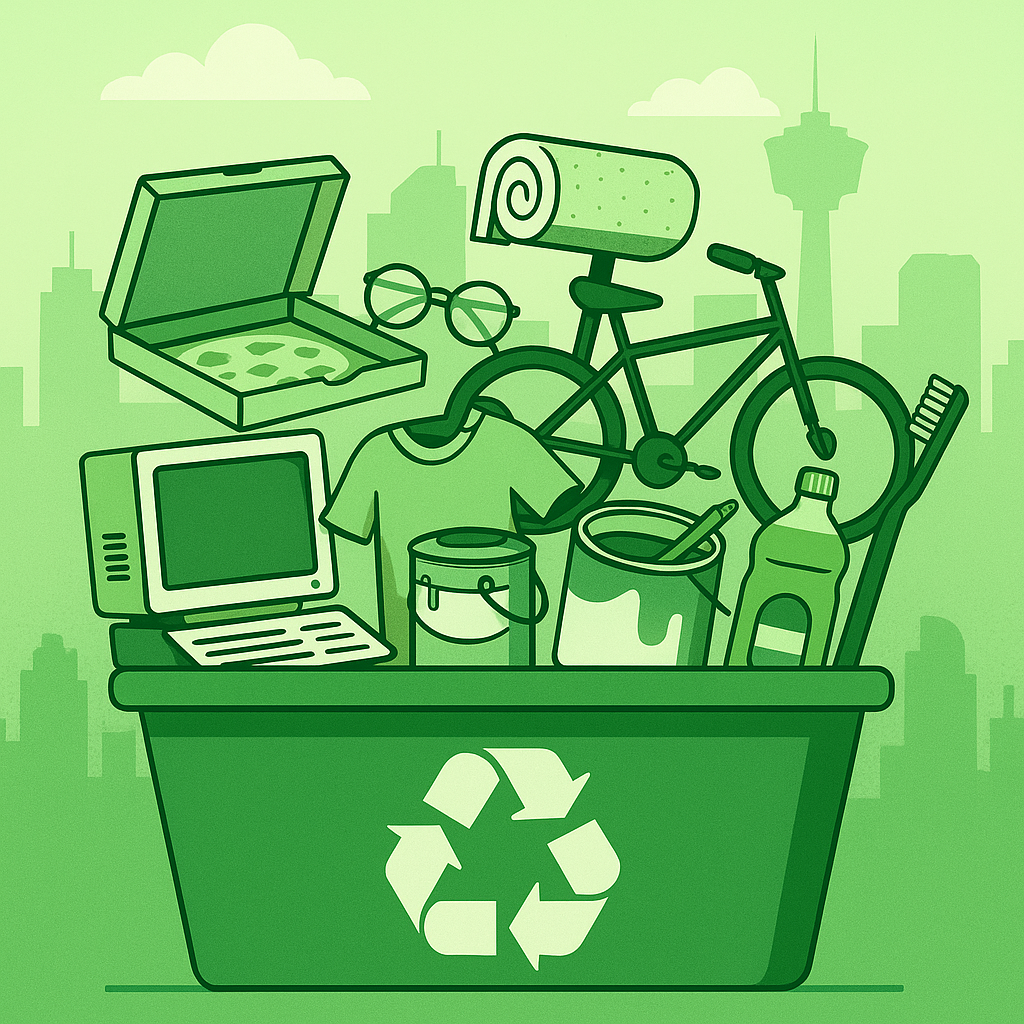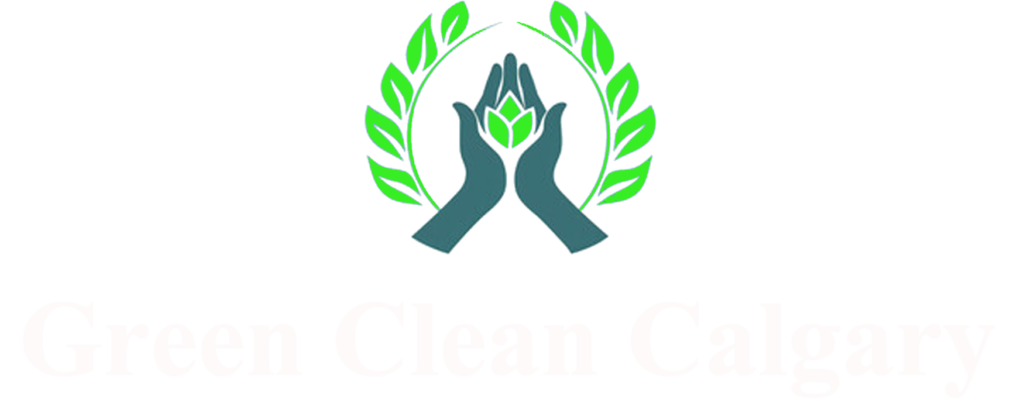
When you think about recycling in Calgary, you probably picture the usual suspects: empty cans, glass bottles, and stacks of cardboard. These are indeed the cornerstones of our municipal recycling program, and it’s fantastic that so many Calgarians diligently sort these items. However, the world of recycling is far more expansive than these common materials. There’s a whole universe of everyday items that frequently find their way into the general waste stream, destined for the landfill, even though they possess the inherent potential to be recycled and, more importantly, to be transformed into something new and useful. This process not only conserves natural resources but also reduces the environmental impact associated with waste disposal.
Let’s delve into a selection of surprising, yet recyclable, items that you might be unknowingly discarding. By understanding where and how to recycle these, you can significantly contribute to a more sustainable Calgary.
That ubiquitous, often frustrating, drawer or box filled with a tangled web of old phone chargers, obsolete headphones, frayed USB cables, and the ghost of your first feature phone is more than just a source of clutter; it’s a treasure trove of recyclable materials. Modern electronics, and even older ones, contain valuable metals such as copper, aluminum, and gold, as well as plastics and glass. Most reputable recycling depots and specialized electronic waste (e-waste) recycling centers in Calgary are equipped and willing to accept these small gadgets, wires, and even larger electronic items. Proper e-waste recycling ensures that hazardous materials are handled safely and valuable components are recovered.
Where to take them: Look for designated electronic recycling centers or city-operated drop-off locations that specifically handle e-waste. Many electronics retailers also offer take-back programs for old devices. Always check the specific guidelines of the facility to ensure they accept the items you have.
The delightful aroma of pizza often leads to a delicious meal, but the aftermath can leave some recyclers wondering about the fate of the pizza box. The good news is that, in many cases, even pizza boxes can, and should, be recycled. The primary concern with pizza boxes is grease contamination. If the bottom of the box is heavily soiled with grease and cheese residue, it can indeed compromise the recycling process, as grease can interfere with the pulping process for paper. However, if the grease contamination is minimal, or if only the lid is affected, these parts can be recycled. The key is to be a mindful recycler.
Actionable advice: Remove any leftover pizza slices or toppings. If the bottom of the box is only lightly soiled, you can often tear off the greasy parts and recycle the clean lid or sides. If the bottom is thoroughly soaked in grease, it’s best to tear off the clean parts for recycling and compost the greasy sections if you have a composting system. This simple separation ensures that the clean paper fibers can be processed effectively.
When a mattress has reached the end of its comfortable life, it can feel like a bulky item destined solely for the landfill. However, this is a misconception that many Calgarians hold. A significant number of specialized recycling facilities in Calgary are dedicated to the process of dismantling old mattresses. This intricate process separates the various components, allowing the foam to be repurposed, the metal springs to be melted down and reused, and the wood frames to be recycled or used for other purposes. Beyond dedicated facilities, there are also specialized junk removal companies that prioritize eco-friendly practices, including the responsible recycling of mattresses.
Where to take them: Research local mattress recycling services or junk removal companies that specifically mention mattress recycling in Calgary. Some waste transfer stations or special drop-off events might also accept them for recycling. Always inquire about their acceptance criteria and any associated fees.
Your outdated or ill-fitting eyeglasses might not be serving you anymore, but they could provide clarity and improved vision for someone else. Many optometrists’ offices and charitable organizations in Calgary actively collect used eyeglasses. These donated frames are typically refurbished by skilled professionals, and the lenses are replaced or adjusted to meet the specific needs of recipients. This is a wonderful way to contribute to vision health and accessibility for individuals who might not otherwise be able to afford corrective eyewear.
Where to take them: Check with your local optometrist’s office, as many participate in donation programs. Organizations like the Lion’s Club often have collection bins. Various charities and community centers may also serve as drop-off points. A quick call to your preferred eye care provider can usually confirm their participation.
Whether you’ve used up every last drop or still have a bit of leftover paint, metal paint cans are highly recyclable. The metal itself, typically steel or aluminum, is a valuable commodity that can be reprocessed indefinitely. The recycling process for paint cans usually involves ensuring the cans are empty, or at least contain minimal residue. Specialized recycling facilities can handle these containers, effectively diverting them from landfills and allowing their metal content to be reused.
Where to take them: Many hardware stores, paint retailers, and municipal waste depots in Calgary accept empty metal paint cans. It’s advisable to check with your local retailer or the City of Calgary’s waste and recycling guidelines for specific drop-off locations and any preparation requirements, such as ensuring cans are completely dry.
Don’t let worn-out, stained, or unwanted clothing become landfill fodder. Textiles, even those that are no longer wearable, have significant potential for repurposing and recycling. These fabrics can be transformed into a variety of new products, ranging from insulation materials used in construction to cleaning rags for industrial use, or even shredded and re-spun into new yarns for other textile applications. Calgary has a growing network of textile recycling bins strategically placed throughout the city, making it convenient to donate your old clothes.
Where to take them: Look for dedicated textile recycling bins located in various public spaces, community centers, and even some retail parking lots across Calgary. Some thrift stores also accept donations of unwearable textiles for recycling purposes. Ensure items are clean and dry before dropping them off.
That old, dusty bicycle gathering cobwebs in your garage, whether it’s in perfect working order or in need of some serious repair, holds the potential for a new lease on life. Many community-focused initiatives and recycling centers in Calgary are keen to accept old bicycles. These bikes can be refurbished by skilled volunteers or mechanics and then donated to individuals or families in need, promoting healthy transportation and recreation. Alternatively, even heavily damaged bikes can be dismantled, with their usable parts – such as frames, wheels, and components – being salvaged and reused, or the metal being sent for recycling.
Where to take them: Explore local bike co-ops, community organizations focused on cycling, or specialized recycling facilities in Calgary that specifically handle bicycles. Many will happily accept donations of both working and non-working bikes.
The festive sparkle of holiday lights often fades with time, and burnt-out strands can become a tangled nuisance. Instead of discarding them, consider that these strings of lights are a prime candidate for recycling. The materials that make up holiday lights, primarily copper wire and plastic insulation, are valuable resources that recycling depots can effectively process. They are stripped down to recover the metals and plastics, which can then be reintroduced into the manufacturing cycle, reducing the need for virgin materials.
Where to take them: Many recycling depots and designated drop-off points, particularly during the holiday season, accept old or broken holiday lights. Keep an eye out for specific collection events or permanent drop-off locations advertised by the city or local recycling organizations.
Used cooking oil, especially from deep fryers, is a substance that many might not consider recyclable. However, this greasy liquid can be transformed into a sustainable energy source: biodiesel. Biodiesel is an environmentally friendly alternative to petroleum-based diesel fuel, produced from vegetable oils or animal fats. Recycling used cooking oil reduces waste and provides a renewable energy option, contributing to a circular economy.
Where to take them: Seal used cooking oil in a sturdy, leak-proof container, such as its original jug or a dedicated collection bottle. Bring it to recycling centers or collection points in Calgary that specifically accept used cooking oil. Some restaurants or specialized collection services might also have designated drop-off points.
Even those small, everyday personal care items like toothbrushes and their accompanying toothpaste tubes can be recycled, albeit through specialized programs. Companies like TerraCycle, a global leader in hard-to-recycle waste solutions, have established innovative recycling programs for a wide array of consumer products. Through these initiatives, used toothbrushes and their plastic tubes are collected, sorted, and processed. The collected materials are then ingeniously transformed into new, useful items such as durable garden tools, park benches, or other plastic goods, diverting them from landfills and giving them a valuable second life.
Where to take them: Look for specific TerraCycle collection points or participate in their mail-in programs. Many dental offices, pharmacies, or community hubs might host designated collection boxes for these items as part of broader recycling initiatives. Check the TerraCycle website for the most up-to-date information on programs and drop-off locations in Calgary.
Recycling is more than just a chore or a set of rules to follow; it represents a conscious effort towards environmental stewardship. By actively participating in recycling programs and seeking out ways to recycle items beyond the standard curbside collection, we directly contribute to keeping vast amounts of waste out of our landfills. This not only conserves valuable land space but also significantly reduces the environmental burden associated with waste decomposition. Furthermore, recycling conserves natural resources by reducing the need to extract and process virgin materials, a process that often carries a high energy and environmental cost. It also plays a crucial role in saving energy and reducing greenhouse gas emissions. Next time you find yourself about to toss an item into the trash, take a moment to pause and consider. Could this be recycled? Could it be repurposed or donated? You might be pleasantly surprised by the answer and the positive impact your simple action can have.
And if your home is in need of a significant decluttering project, and you’re concerned about ensuring that every item finds its proper destination, whether it’s recycling, donation, or responsible disposal, Green Clean Calgary is a professional service ready to assist you. They can help manage your waste responsibly and efficiently, making your clear-out process both easier and more environmentally conscious.
This document is intended for informational purposes and to raise awareness about recycling opportunities in Calgary. Specific recycling guidelines and accepted items may vary by facility and change over time. It is always recommended to verify with local recycling centers or the City of Calgary for the most current information.
